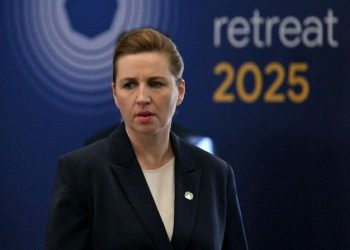Johannesburg, South Africa – President Cyril Ramaphosa has vowed that South Africa will not withdraw its support for the Democratic Republic of Congo (DRC) despite growing calls to pull out South African troops following the deaths of 14 soldiers in the conflict.
The Rwanda-backed M23 rebel group has made significant territorial advances in eastern DRC, capturing the major city of Goma last week and threatening to march further towards the capital, Kinshasa. The escalating violence has prompted emergency meetings among African regional blocs, underscoring the deepening crisis in the mineral-rich yet war-torn region.
“Achieving a lasting peace and security for the eastern DRC and the region requires the collective will of the community of nations,” Ramaphosa said in a statement. “South Africa will not let up in its support to the people of the DRC.”
Mounting Casualties Spark Calls for Troop Withdrawal
The 14 South African soldiers killed were part of a peacekeeping mission deployed in 2023 under the 16-nation Southern African Development Community (SADC). However, the increasing hostility of the M23 rebels has led to nationwide calls for withdrawal, with the radical Economic Freedom Fighters (EFF) party among those pushing for an exit.
EFF leader Julius Malema criticized the mission, labeling it “reckless and unjustifiable.”
“With the increasing hostility involving the M23 rebels, it is imperative that South Africa withdraws its troops to ensure their safety,” Malema stated.
Despite these concerns, Ramaphosa defended the deployment, emphasizing that the SADC mission has a structured timeline and a clear end date.
“The mission will wind down in accordance with the implementation of various confidence-building measures and when the ceasefire we have called for takes root,” he said.
The SADC bloc last week convened an emergency summit with the eight-member East African Community (EAC) to discuss the security situation in the DRC and a possible way forward. The summit, held in Harare, Zimbabwe, reaffirmed SADC’s commitment to peace in the DRC and pledged continued support for mediation efforts led by Angola and Kenya.
Regional and Political Ramifications
South Africa’s decision to continue its involvement comes amid questions over the effectiveness of the mission and the preparedness of the South African National Defense Force (SANDF). Experts warn that budget constraints and inadequate military resources have left South African troops vulnerable.
Guy Martin, editor of defenseWeb, highlighted the inconsistencies in government military spending:
“The government has kept increasing the SANDF’s mandate while cutting its funding and capabilities,” he wrote in the local Sunday Times newspaper.
The Democratic Alliance (DA), the official opposition party, has demanded a parliamentary debate over the deployment.
“We need to understand why our troops were deployed without the required support, including air support,” the DA stated.
South Africa remains the dominant contributor to the SADC peacekeeping force, which consists of approximately 1,300 troops from South Africa, Malawi, and Tanzania. However, concerns over inadequate military resources, logistics, and funding continue to plague the mission.
What Lies Ahead?
As South Africa maintains its commitment to peacekeeping efforts in the DRC, questions remain about the mission’s sustainability, safety of troops, and overall effectiveness in stabilizing the region.
With regional blocs increasing diplomatic engagements, including mediation efforts led by Angola and Kenya, the coming weeks will be crucial in determining whether a ceasefire agreement can be enforced and whether South African troops will remain on the ground despite rising casualties.
For now, President Ramaphosa stands firm, insisting that South Africa’s mission is vital for peace and stability in one of Africa’s most volatile regions. However, with public pressure mounting and political opposition growing, the debate over South Africa’s role in the DRC conflict is far from over.












